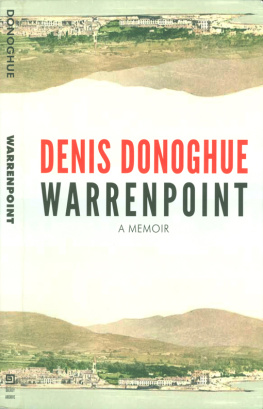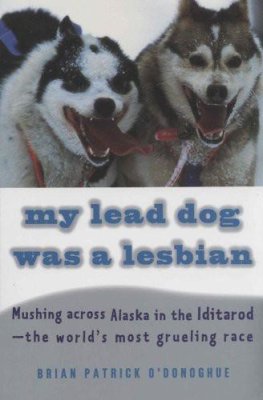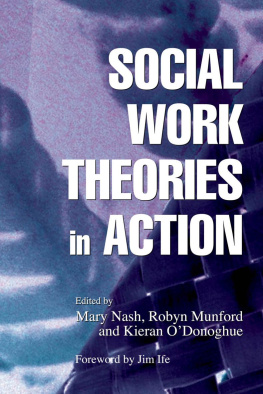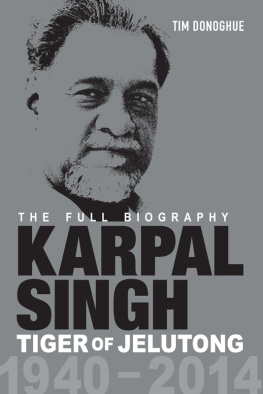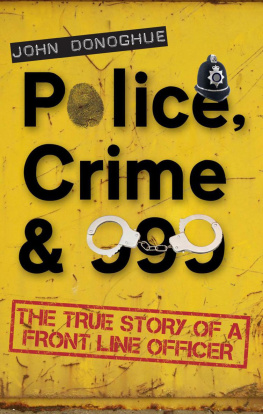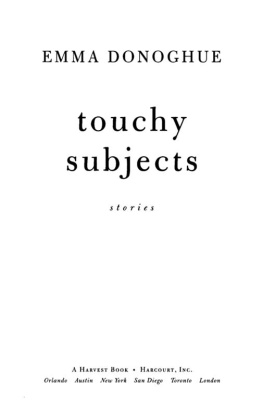Donoghue - Warrenpoint
Here you can read online Donoghue - Warrenpoint full text of the book (entire story) in english for free. Download pdf and epub, get meaning, cover and reviews about this ebook. City: Warrenpoint (Northern Ireland), Northern Ireland., Northern Ireland--Warrenpoint, year: 2013, publisher: Dalkey Archive Press, genre: Non-fiction. Description of the work, (preface) as well as reviews are available. Best literature library LitArk.com created for fans of good reading and offers a wide selection of genres:
Romance novel
Science fiction
Adventure
Detective
Science
History
Home and family
Prose
Art
Politics
Computer
Non-fiction
Religion
Business
Children
Humor
Choose a favorite category and find really read worthwhile books. Enjoy immersion in the world of imagination, feel the emotions of the characters or learn something new for yourself, make an fascinating discovery.
- Book:Warrenpoint
- Author:
- Publisher:Dalkey Archive Press
- Genre:
- Year:2013
- City:Warrenpoint (Northern Ireland), Northern Ireland., Northern Ireland--Warrenpoint
- Rating:4 / 5
- Favourites:Add to favourites
- Your mark:
- 80
- 1
- 2
- 3
- 4
- 5
Warrenpoint: summary, description and annotation
We offer to read an annotation, description, summary or preface (depends on what the author of the book "Warrenpoint" wrote himself). If you haven't found the necessary information about the book — write in the comments, we will try to find it.
Donoghue: author's other books
Who wrote Warrenpoint? Find out the surname, the name of the author of the book and a list of all author's works by series.
Warrenpoint — read online for free the complete book (whole text) full work
Below is the text of the book, divided by pages. System saving the place of the last page read, allows you to conveniently read the book "Warrenpoint" online for free, without having to search again every time where you left off. Put a bookmark, and you can go to the page where you finished reading at any time.
Font size:
Interval:
Bookmark:
SELECTED OTHER WORKS BY DENIS DONOGHUE
The Third Voice: Modern British and American Verse Drama
Connoisseurs of Chaos: Ideas of Order in Modern American Poetry
The Ordinary Universe: Soundings in Modern Literature
Thieves of Fire
The Sovereign Ghost: Studies in Imagination
Ferocious Alphabets
The Politics of Modern Criticism
The Arts Without Mystery
We Irish: Essays on Irish Literature & Society
Reading America: Essays on American Literature
The Pure Good of Theory
Who Says What and the Question of Voice
The Old Moderns: Essays on Literature and Theory
Walter Pater: Lover of Strange Souls
Practice of Reading
Words Alone
Adams Curse: Reflections on Religion and Literature
Speaking of Beauty
The American Classics
On Eloquence
Originally published by Alfred A. Knopf, Inc., New York, 1990.
Copyright 1990 by Denis Donoghue
First Dalkey Archive edition, 2013
All rights reserved
Library of Congress Cataloging-in-Publication Data is available.
ISBN: 978-1-564-78984-6 (e-book)
Partially funded by a grant from the Illinois Arts Council, a state agency

www.dalkeyarchive.com
Cover: design and composition by Mikhail Iliatov
Printed on permanent/durable acid-free paper

WARRENPOINT

SERGEANT DENIS DONOGHUE
WARRENPOINT
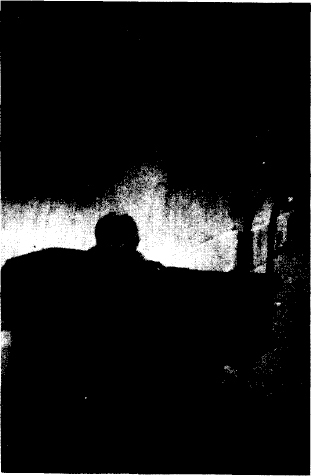
JOHN DONOGHUE
For John,
who died

, not as a village. In my private dictionary a village is a community surrounded by fields: the people are farmers, or they serve farmers and their families as shopkeepers, nurses, doctors, teachers, priests. At Sunday Mass the men wear caps, not hats, and after Mass they stand around the church to chat, gossip, or stare at the hills. A town, small or large, is not dependent upon the land that surrounds it; it opens on a different world. Tullow, in County Carlow, where I was born on December I, 1928, still seems to me a village. No disrespect is intended. When I stand outside my brother Tims shopboots and shoesin Bridge Street, I smell cows. On one side of Tullow there is Rathvilly, a village, and farther still, in the direction of Dublin, there is Baltinglass, another village, though it regards itself as a town. In the other direction Carlow is a town, because it is big enough to make you forget the fields surrounding it. One street in Carlow leads to another much the same: it is the kind of town that Yeats hated, though he probably never saw it. He saw many towns like Carlow and passed through them with distasteMullingar, Athlone, Athenry, I supposeon his way to Coole Park, Lady Gregorys estate in Gort, County Galway.
Warrenpoint is a town because one side of it opens upon the sea. If you look at a map of Ireland, find Belfast, come around the Ards Peninsula and Strangford Lough, and mark Ardglass, Newcastle, Kilkeel, and Rostrevor, youll find the next town is Warrenpoint, where Carlingford Lough narrows till it ceases being a lough at Narrow Water and becomes the Newry Canal; not much of a canal these days. Warrenpoint looks across the lough to Omeath, a meagre town though it has Newry on one side and Carlingford on the other and the Cooley Mountains behind it and one of the mountains is called the Long Womans Grave. Warrenpoint is in Northern Ireland; Omeath is in the South. A ship of the British Navy now sits in the middle of the lough to prevent incursions of the Irish Republican Army, deemed to be rampant in the woods and villages between Omeath and Dundalk. Weapons, bought in Holland or otherwise acquired in Libya, are somehow delivered to the IRA in the North. A few of these deliveries are probably made by small boats at night from Omeath or Carlingford, despite the vigilance of the Navy. In my time such vigilance was not required. We had a dock, and coal boats regularly arrived with supplies for Kellys Coalyard, but there was no cause to assume that the cargoes included guns.
Warrenpoint was a seaside resort, if you please. I dont recall that the local Urban District Council displayed coloured pictures advertising the charm of the town; nothing like Come to Sunny Prestatyn in Philip Larkins poem, with a laughing girl in a swimsuit and, behind her, hotels with palm trees expanding from her thighs and arms. Nothing as grand as that. As a resort, Warrenpoint relied not upon laughing girls or golden weather but upon three more reliable considerations. One: you could get to the place easily from any part of the North by train, since it was the terminus of the Great Northern Railways branch line from Newry. No longer; the train is gone. Two: Warrenpoint has the largest square in Ireland, a great place for amusements, circuses, swings and round-abouts, ice-cream carts, parades, celebrations. The square was promiscuous in the wiles of display. Three: the licensing laws for the sale of alcohol are stricter in the North than in the South, mainly because Presbyterians keep the Sabbath more severely than Catholics do. If you came to Warrenpoint for a Sunday trip, you would find the public houses shut, but you could go by ferryboat across to Omeath, an open town on the Sabbath, for drink and noise. Meanwhile, children and their mothers passed the Sunday on a rough pebble beach in Warrenpoint and watched the yachts and rowing boats in the lough. If the pleasure of watching other people enjoying themselves wore off, the mothers could walk to the town park and see their betters playing tennis. Or walk along the coast road to Rostrevor, a smaller and prettier town than Warrenpoint and socially several cuts above it. Warrenpoint had tea shops, but Rostrevor had the Great Northern Hotel, a place of emphasised elegance. Not now: it was decisively bombed some years ago by the IRA, and the remains of it have been removed.

I REMEMBER NOTHING before Warrenpoint:
I remember, I remember
The house where I was born,
The little window where the sun
Came peeping in at morn.
I dont, unfortunately. It was customary for an expectant mother in my mothers time to go back to her own people for several weeks before and after the birth of the child. My mothers family was divided in two parts. Some of the children were reared with their parents in Clonmel, County Tipperary, and some with more remote relatives in Tullow. My mother and her sister Ciss grew up in Tullow, so she went back there when her time came. Whether I was born in the house in Bridge Street or in the local cottage hospital, I dont know. Probably in the house, a big ramshackle affair containing a shop, run by Martin Coady, my mothers uncle. The shop was reputed to have sold, during the few years of its splendour, more bacon than any other shop in the east of Ireland. In my time it sold virtually nothing but bacon and, for specially favoured customers, butter and cigarettes. Martin Coady, a man of relentless gloom, as I recall him, was also the local representative of the Graguenamanagh Sack-Hiring Company, and he had a barn behind the shop where he spent the winter days mending torn sacks in preparation for the harvest season. Silently he spread the damaged part of a sack across his knees and darned it with a large, curved sacking needle and thick brown twine. I watched him till my silence, matching his, became oppressive to both of us. Meanwhile Ciss attended to the shop. She did not stand behind the counter but sat in the little sitting room reading the sporting page of
Next pageFont size:
Interval:
Bookmark:
Similar books «Warrenpoint»
Look at similar books to Warrenpoint. We have selected literature similar in name and meaning in the hope of providing readers with more options to find new, interesting, not yet read works.
Discussion, reviews of the book Warrenpoint and just readers' own opinions. Leave your comments, write what you think about the work, its meaning or the main characters. Specify what exactly you liked and what you didn't like, and why you think so.

